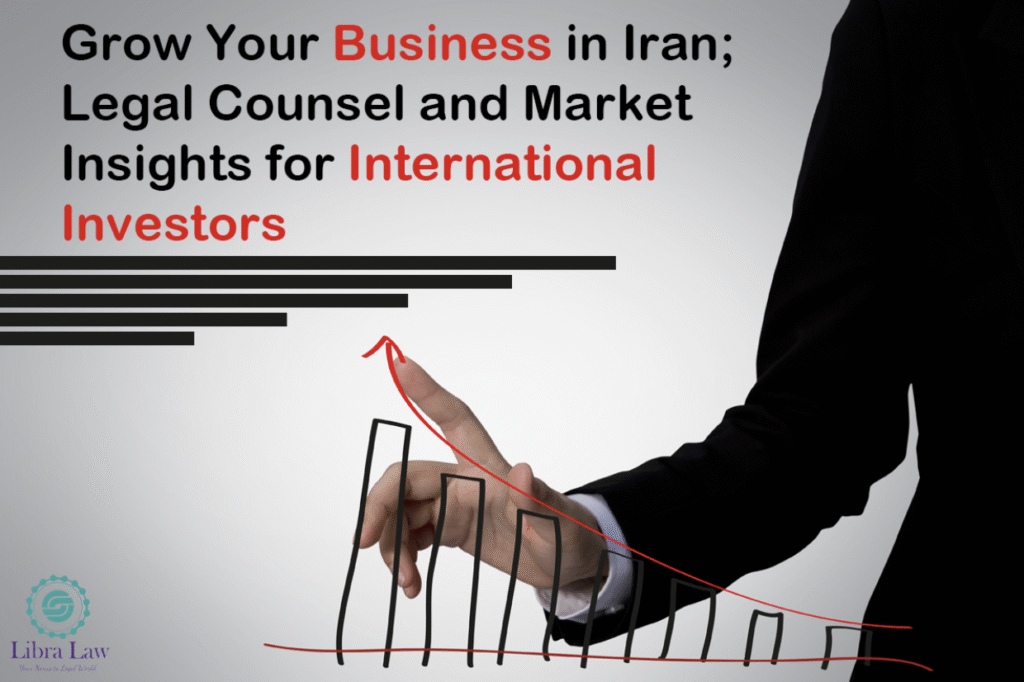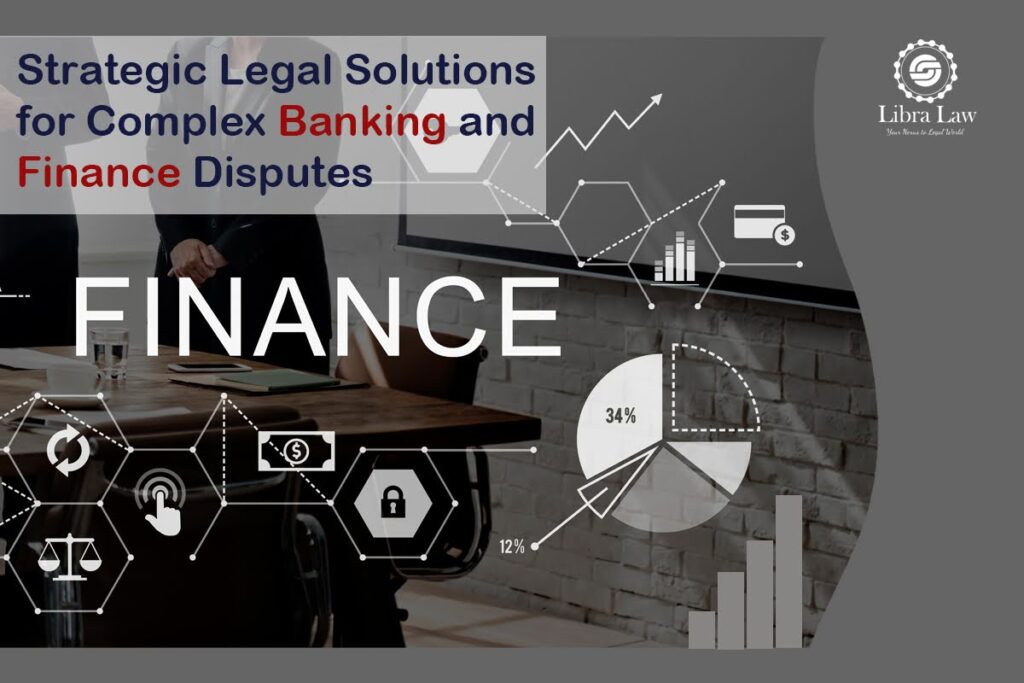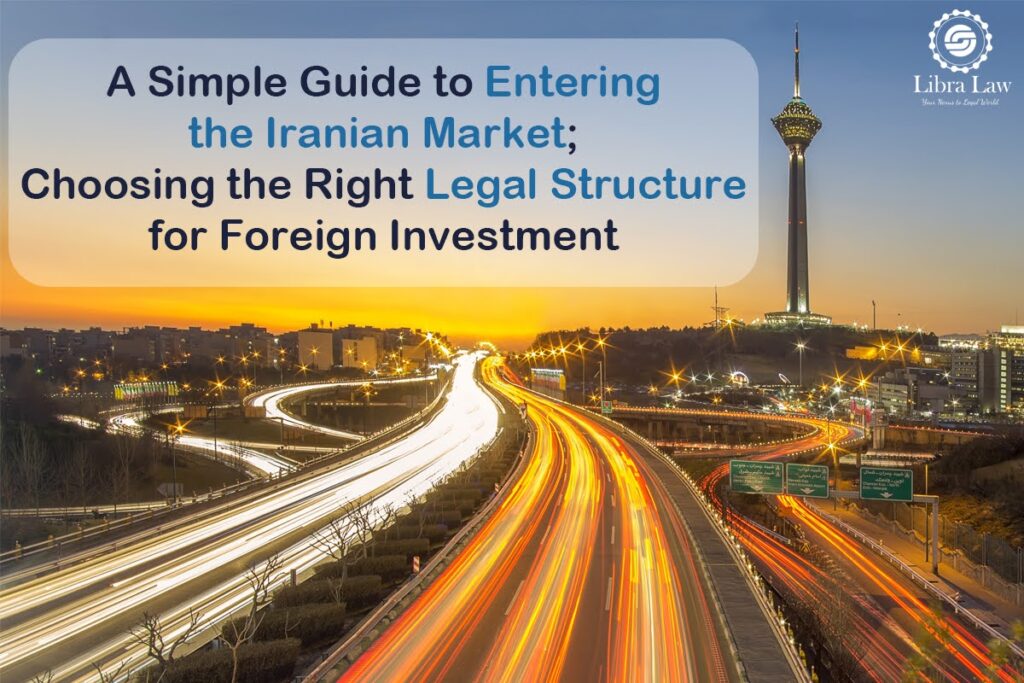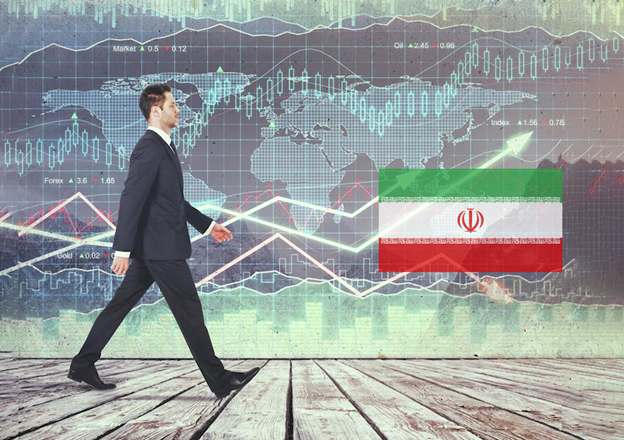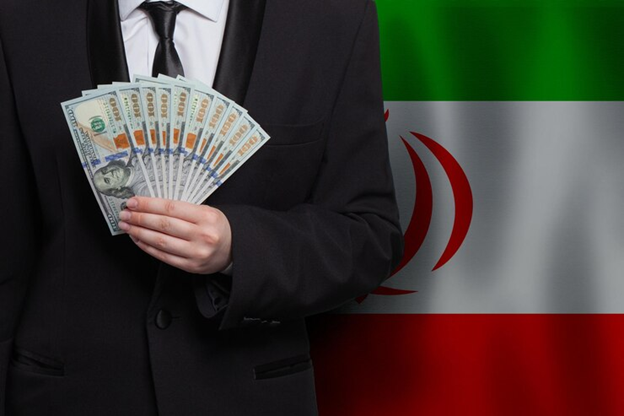For any business leader or investor looking to tap into Iran’s lucrative energy sector, Navigating the Legal Landscape of Iran’s Oil and Gas Market; Strategic Insights for Foreign Investors is a must-read. As a key part of the oil, gas and petrochemical industry, this market demands a deep understanding of the complex legal framework surrounding foreign investment in Iran’s petroleum sector.
For a comprehensive overview of the legal structures and investment forms available for foreign investors in Iran, see our article «A Simple Guide to Entering the Iranian Market; Choosing the Right Legal Structure for Foreign Investment».
This market demands a deep understanding of the complex legal framework surrounding foreign investment in Iran’s petroleum sector. As explained in detail in the article «A Complete Legal Guide to Success in Petroleum and Energy Projects», navigating this framework is essential for success.
In this article, LibraLaw’s legal experts deliver a clear, practical guide to the essential regulations, from upstream service contracts to constitutional restrictions. Our insights will empower you to navigate risks confidently and seize strategic opportunities in this challenging yet rewarding market.
How Does Iran’s Constitution Shape Foreign Investment Opportunities in Its Oil and Gas Sector?
The Iranian Constitution takes a foundational stance on economic planning by positioning the economy as a tool for broader human development rather than a goal in itself; This principle, clearly stated in the preamble — “Economy is a means, not an end” — forms the ideological backbone of Iran’s economic system. It stresses that economic policies must be aligned with the overarching moral, social and political goals of the Islamic Republic, shaping all regulatory frameworks including those governing foreign investment.

A key legal constraint for foreign investors arises from Article 43(8), which strictly prohibits foreign control or domination over the national economy; This clause is widely interpreted as a constitutional barrier against unrestricted foreign ownership, especially in strategic sectors such as oil and gas. Complementing this, Article 44 reinforces a state-centric economic model by mandating that all major industries, including natural resources like oil and gas, remain under exclusive government ownership and oversight.
In practical terms, this means both upstream (exploration and production) and downstream (refining and distribution) activities within the petroleum sector are regarded as state monopolies. Legal scholars, including Dr. Shiravi, support this view, frequently asserting that even Iranian private firms are precluded from direct involvement in core oil and gas extraction; This position is codified in the Law on the Implementation of General Policies of Article 44, where Article 2 explicitly classifies the oil and gas sector as part of the public sector, placing upstream operations beyond privatization efforts.
However, there is a critical exception that provides a practical entry point for foreign participation: ancillary services linked to upstream operations — such as drilling, equipment supply, logistics and technical consultancy — are legally recognized as “non-governmental activities”; This legal classification allows private and foreign companies to engage in the sector via contractual mechanisms without violating constitutional ownership rules. For example, international firms commonly operate under long-term Technical Service Contracts (TSCs) or engineering procurement and construction (EPC) contracts, enabling their involvement while preserving state control over resources.

For foreign investors, this constitutional framework presents both constraints and opportunities. It is essential to design investment and partnership models that respect the absolute state ownership of upstream resources under Article 44, while maximizing commercial returns within permitted contractual arrangements. Seeking expert legal advice is critical to ensure compliance with Iran’s constitutional provisions and related laws, and to navigate the complexities of permissible foreign participation in this strategically sensitive sector.
What Are the Legal Pathways and Limits for Foreign Investment Under Iran’s FIPPA?
The Foreign Investment Promotion and Protection Act (FIPPA) aligns with the Iranian Constitution by aiming to encourage foreign investment while strictly respecting constitutional limits. Article 2 of FIPPA defines two primary avenues for foreign participation in Iran’s economy:
1. Direct Foreign Investment
This applies only to sectors where private ownership is legally permitted. Although FIPPA does not explicitly restrict investment in oil and gas, it must be interpreted alongside Article 2 of the Law on Implementation of General Policies of Article 44 of the Constitution; That law designates the upstream oil and gas sector as fully state-owned, effectively excluding direct foreign ownership or equity participation in these activities despite FIPPA’s general openness.
2. Contract-Based Investment Models
These include civil partnerships, buy-back agreements, and Build-Operate-Transfer (BOT) schemes; In these models, foreign investors recover their capital and earn returns solely through project revenues, without sovereign guarantees from the government or state-owned entities. Historically, buy-back contracts were widely used in the 1990s and early 2000s, enabling international oil companies (IOCs) to finance development projects and recoup investments via product shares, without gaining ownership or control over reserves.
For more insights on how Iranian tax laws affect foreign investors and contractual arrangements, see the article «A Practical Guide to Iranian Tax Laws for Foreign Investors».

- The Iranian government retains full ownership and control of upstream oil and gas resources.
- Foreign entities act as contractors, not owners, assuming operational risks and working within stringent cost-recovery frameworks.
- Profitability and decision-making influence are limited under these arrangements.
- Successful investment requires meticulous legal and commercial planning to navigate overlapping laws and constitutional constraints.
For a detailed overview of contract-based investment models available to foreign investors under FIPPA, see the article «Foreign Investment in Iran; How FIPPA Protects Your Capital».
While FIPPA encourages foreign participation broadly, constitutional protections make direct foreign ownership in oil and gas practically impossible. Consequently, contract-based partnerships remain the most viable route for foreign investors in Iran’s petroleum sector.
Can Foreign Investors Break Into Iran’s Oil Sector? A Look at the Caspian Sea Exception
The Iran Petroleum Act, under Article 6, broadly prohibits foreign investment in the oil and gas industry without prior approval from the Ministry of Petroleum; This restriction covers both upstream (exploration and production) and downstream segments, presenting a generally conservative legal stance. However, this blanket prohibition is not absolute. Article 3 of the Law on Implementation of General Policies of Article 44 of the Constitution permits private sector involvement in ancillary industries related to upstream operations — such as refineries, pipelines, telecommunications, transmission infrastructure and petrochemicals; These activities are legally classified as non-governmental, thereby opening pathways for private and under certain contractual frameworks, foreign investment.
This creates a complex legal environment marked by a tension between the Petroleum Act’s restrictive provisions and broader economic reforms aiming to liberalize parts of Iran’s oil and gas sector. For foreign investors, this means that while core upstream exploration and production remain strictly state-controlled, ancillary sectors offer realistic entry points for foreign participation.

A critical practical example illustrating this nuanced framework is the 2000 authorization granted to the National Iranian Oil Company (NIOC) to operate in the Caspian Sea region; This authorization allowed NIOC to enter contracts with both domestic and foreign companies, representing a rare sector-specific exception to the general foreign investment ban. However, this flexibility is geographically confined and does not apply outside the Caspian Sea area or to other oil and gas fields within Iran.
In practice, such limited exceptions reflect Iran’s cautious and selective approach to attracting foreign expertise and capital, especially in technically complex or strategically important regions. Notably, foreign investors do not gain ownership rights over oil and gas reserves; their involvement must be framed within specialized contracts — typically service or performance-based models — approved under strict governmental oversight. These contractual models, such as buy-back or technical service contracts, ensure state ownership remains intact while enabling foreign participation on a limited basis.
For legal practitioners and investors, successfully navigating this layered and sometimes contradictory regulatory landscape requires thorough legal due diligence; This includes detailed analysis of sector-specific exemptions, current ministerial decrees and the evolving strategic priorities of the Ministry of Petroleum. Understanding these factors is essential to structure compliant investment models that balance risk and opportunity within Iran’s petroleum sector.
Sixth Five-Year Development Plan (2016–2021): A Gateway for Strategic Entry into Iran’s Energy Sector
Temporary regulations in Iran serve as key strategic planning instruments aligned with national development objectives; Although these regulations are inherently time-bound — spanning medium-term (1–5 years) to long-term (over 10 years) horizons — they significantly influence policymaking and the operational conduct of governmental bodies, particularly in critical sectors such as oil, gas and petrochemicals. For foreign investors, these regulatory frameworks act as important signals of policy direction and the potential for sectoral openness.

Among these, the Sixth Five-Year Development Plan (2016–2021) provides valuable insights into Iran’s evolving policies toward foreign participation in the energy sector. Key highlights include:
- Facilitating Non-Governmental Investment in Exploration and Development
Paragraph 12 explicitly supports involvement by non-governmental entities — including foreign companies — in the exploration, development and production phases of oil and gas fields. Importantly, this involvement is permitted only through service-oriented contracts without conferring ownership rights, in strict adherence to Article 44 of the Constitution. For foreign investors, this means structuring projects around models such as Technical Service Contracts (TSCs) or Engineering, Procurement and Construction (EPC) agreements, which allow participation without equity ownership.
- Prioritizing Shared Fields and High-Value Projects
The Plan emphasizes the development of shared oil and gas fields — those located along borders with neighboring countries and vulnerable to depletion without immediate investment. Recognizing their strategic importance, the government shows increased flexibility in these zones by welcoming foreign expertise and capital through contractual models like buy-back agreements, Build-Operate-Transfer (BOT) and Build-Own-Operate (BOO) schemes; This opens targeted opportunities for investors interested in projects with higher complexity and geopolitical significance.
- Delegation of Associated Gas Operations
Paragraph 15 designates public sector entities as responsible for managing associated gas produced alongside oil extraction. However, it authorizes outsourcing operational roles to qualified private contractors; This policy creates a niche for foreign companies specializing in advanced technologies related to gas gathering, flare reduction and environmental management, offering potential contracts without infringing on core resource ownership.
Can Strategic Planning Unlock Iran’s Oil and Gas Sector for Foreign Investors?
While the Sixth Five-Year Development Plan has officially concluded, its policy principles continue to influence subsequent national plans and regulatory enforcement. For investors considering entry into Iran’s oil and gas sector, these plans should be viewed not as fleeting guidelines, but as semi-permanent frameworks reflecting Iran’s strategic intent.
Before committing capital, foreign investors should:
- Monitor Continuity: Track how these provisions are integrated into newer development plans to anticipate ongoing policy stability or shifts.
- Engage Legal Expertise: Work closely with local legal counsel to accurately interpret current regulations, secure required approvals and ensure full compliance.
- Adopt Contract-Based Investment Models: Design investments around permissible service and contractual arrangements that respect constitutional prohibitions on foreign ownership.

In conclusion, although direct foreign ownership of upstream oil and gas resources remains constitutionally forbidden in Iran, temporary regulations like the Sixth Five-Year Development Plan provide meaningful pathways for foreign participation. By leveraging contract-based frameworks and focusing on strategic projects — such as shared fields and associated gas operations — well-prepared investors can capitalize on significant opportunities within Iran’s complex but promising energy sector.
For detailed strategies on drafting and managing contracts in Iran’s business environment, see the article «Business Contracts in Iran; Strategies to Protect Your Interests».
Can Temporary Regulations Create Real Opportunities for Foreign Investors in Iran’s Energy Sector?
Temporary regulations in Iran are not just administrative tools; they function as strategic policy instruments that shape economic direction and guide the behavior of state institutions. While these regulations are formally time-bound — typically aligned with national development plans — they often reflect longer-term government intentions and priorities, especially in sensitive and high-value sectors like oil, gas and petrochemicals.
For foreign investors, temporary regulations serve as an important lens through which the legal and commercial environment can be evaluated. Despite constitutional prohibitions on foreign ownership in upstream oil and gas, these regulatory frameworks may open indirect or contract-based pathways for participation.
The practical implications of these temporary laws for foreign investors include the following:
1. Signals of Policy Direction
Temporary regulations offer more than short-term guidance; they signal Iran’s shifting economic priorities and openness to foreign collaboration. When these regulations promote private sector engagement or emphasize the need for foreign expertise — particularly in high-priority areas like shared oil fields or gas recovery — they serve as early indicators of favorable investment windows. Investors who monitor and interpret these signals can position themselves ahead of the curve.
2. Operational Leverage Without Ownership

Iran’s Constitution prohibits foreign ownership in upstream oil and gas. However, temporary laws frequently allow foreign entities to engage in non-sovereign functions — such as exploration services, project management and technology transfer — through contract-based models like:
- Technical Service Contracts (TSCs)
- Engineering, Procurement and Construction (EPC) contracts
These models permit foreign companies to operate profitably while complying with legal restrictions.
3. Strategic Entry Points
Well-crafted temporary regulations have allowed international firms to enter niche but impactful areas. Examples include:
- Gas flaring reduction via advanced capture and recovery systems
- Border-region shared fields development, where urgency and technical complexity create demand for foreign expertise
- Petrochemical sector upgrades through cutting-edge design and process engineering
Such projects offer limited but tangible returns and long-term partnership potential — even without equity stakes.
4. A Tool for Risk and Timing Assessment
For foreign investors, temporary regulations function as both opportunity maps and risk barometers. They reveal:
- Where the Iranian government is more likely to offer regulatory flexibility;
- Which sectors are strategically prioritized;
- Where legal or operational bottlenecks may still exist.
Following the renewal or expiration of such regulations — especially within new Five-Year Development Plans — can help investors adjust strategies, manage risk exposure and align investment timing with government signals.

Although ownership rights in Iran’s upstream sector remain constitutionally restricted, temporary regulations provide structured, lawful, and often overlooked paths for foreign involvement. By staying informed, engaging local legal counsel and focusing on contract-based, value-added contributions, foreign investors can secure a foothold in Iran’s complex yet promising energy sector.
Practical Recommendations for Foreign Investors in Iran’s Oil and Gas Industry
- Understand Constitutional Restrictions
Iran’s Constitution mandates state ownership of upstream oil and gas resources. Foreign investors cannot own or control oil and gas reserves directly, as this is strictly prohibited by Articles 43(8) and 44.
- Focus on Contract-Based Investment Models
Since direct ownership is banned, enter the market via contract models such as Technical Service Contracts (TSCs), Engineering, Procurement, and Construction (EPC) contracts, buy-back agreements and Build-Operate-Transfer (BOT) schemes; These allow foreign companies to provide services and recover investments without owning reserves.
- Target Ancillary and Non-Governmental Activities
Opportunities exist in sectors related to upstream operations — like drilling services, equipment supply, logistics, technical consultancy, refining, pipelines and petrochemical projects — which are classified as non-governmental and open to private and foreign participation.
- Explore Geographic Exceptions
The Caspian Sea region is a rare exception where foreign companies can engage more freely under government-approved contracts. Look for such region-specific exceptions for potential entry points.
- Seek Local Legal Expertise

Navigating overlapping laws, constitutional limits, and temporary regulations requires expert Iranian legal counsel to ensure compliance and identify the most current opportunities.
- Structure Investments Carefully
Design your partnerships and contracts to align strictly with Iranian constitutional and statutory provisions, maximizing returns within allowed frameworks and avoiding any attempt at ownership or control.
- Monitor Temporary and Development Plans
National development plans (e.g., the Sixth Five-Year Plan) often provide evolving rules and incentives for foreign participation in exploration, development and production services. Stay updated on these plans as they indicate government openness.
- Prepare for Risk and Limited Guarantees
Contract-based models in Iran usually do not offer sovereign guarantees; investors bear operational and commercial risks under strict cost-recovery rules. Risk management strategies are essential.
As emphasized in the article «Comprehensive Guide to Negotiation, Dispute Resolution and Regulatory Compliance in Energy Projects», proactive dispute resolution and regulatory compliance measures can mitigate these risks effectively.
- Prioritize Shared and Strategic Fields
Iran shows greater flexibility in allowing foreign participation in joint or shared fields (bordering other countries), which often require urgent development and offer special contract terms.
- Comply with Ministry Approvals
The Ministry of Petroleum’s approval is mandatory for any foreign involvement. Early engagement with government authorities is crucial to obtain necessary permits and authorizations.
Navigating Iran’s oil and gas regulatory landscape requires more than just general legal knowledge. With overlapping laws, constitutional constraints, sector-specific restrictions and evolving policy instruments, foreign investment in this field demands precise, expert legal guidance.
At LibraLaw Legal Firm, our seasoned legal professionals specialize in Iranian energy and investment law. We offer practical, compliant and strategic advice tailored to the needs of investors operating in complex environments.If you’re considering investment or seeking clarity on legal pathways, contact us today. Our team is ready to help you move forward with confidence.



